April 14, 2025 | 16:30 GMT +7
April 14, 2025 | 16:30 GMT +7
Hotline: 0913.378.918
April 14, 2025 | 16:30 GMT +7
Hotline: 0913.378.918
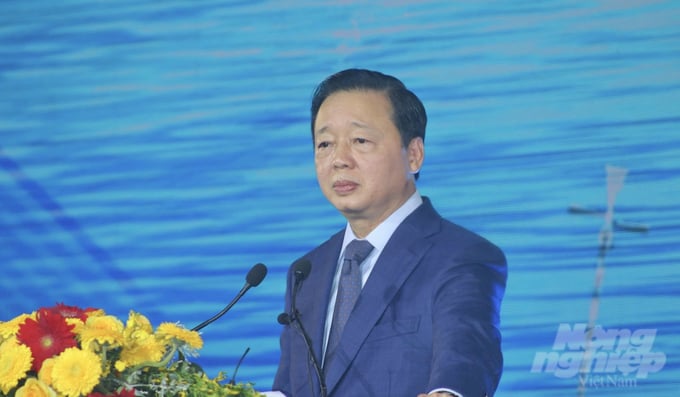
Deputy Prime Minister Tran Hong Ha attending the 2025 Investment Promotion Conference in Bac Lieu Province. Photo: Trong Linh.
Deputy Prime Minister Tran Hong Ha made this statement at the 2025 Investment Promotion Conference. The event was hosted in Bac Lieu Province on March 7 with the theme "Bac Lieu – A Sustainable Investment Destination.”
The conference saw the participation of Deputy Prime Minister Tran Hong Ha, Deputy Minister of Agriculture and Environment Vo Van Hung, leaders of central ministries and sectors, provincial and municipal authorities, and more than 200 domestic and international businesses.
Deputy Prime Minister Tran Hong Ha regards Bac Lieu as a developing province with a strategically important position. The region possesses a unique cultural heritage as well as strong potential and competitive advantages in renewable energy, aquaculture and seafood processing, and tourism.
Notably, Bac Lieu’s most valuable asset is its heroic and revolutionary tradition. The people of Bac Lieu, characterized by their generosity, solidarity, and strong Southern identity, possess an unwavering spirit to overcome challenges and nurture development.
With its existing potential and aspiration for progress, the Deputy Prime Minister affirmed that the Party Committee, government, military, and people of Bac Lieu have accurately identified their distinct advantages. By prioritizing key economic pillars—such as high-tech agriculture, renewable energy, tourism and trade, the marine economy, and high-quality healthcare and education—Bac Lieu is emerging as a highlight on Vietnam’s investment landscape.
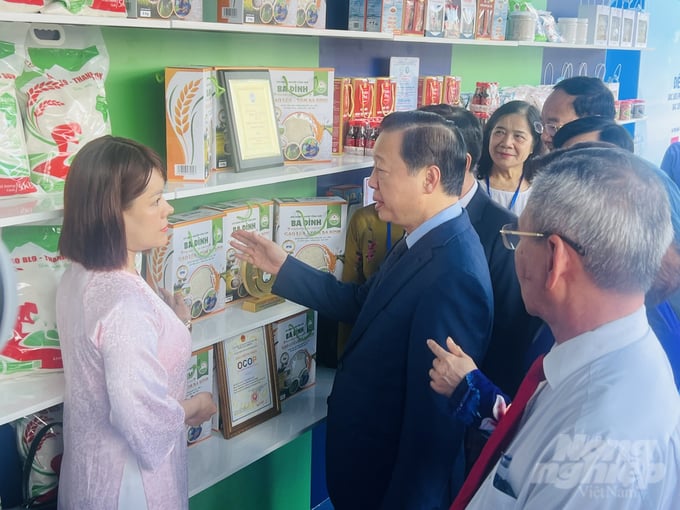
Deputy Prime Minister Tran Hong Ha visiting the OCOP product exhibition booth at the conference. Photo: Trong Linh.
Bac Lieu is currently home to a total of 4,185 investment projects, with a total capital of 185 trillion VND, which is equivalent to 2.8 times the province's GRDP. This figure marks Bac Lieu's entry into a phase of booming growth, supported by strong determination and a clear strategy.
“This is the result of continuous effort, firm commitment, scientific approach, and well-structured execution, which made plans and strategies a reality," Deputy Prime Minister Tran Hong Ha stated regarding the province's potential.
Vietnam has identified Bac Lieu as a key hub for renewable energy, a leading province in the marine economy, and a center for high-tech agriculture that supports seafood processing. To achieve these goals—especially in the context of climate change, rising sea levels, and the exploitation of Mekong River water resources affecting both Bac Lieu and the Mekong Delta—the Party and the State have introduced policies to foster innovation, development, and a transition toward a more efficient and value-driven growth model.
Deputy Prime Minister Tran Hong Ha emphasized the need for Bac Lieu to focus on developing a comprehensive infrastructure system and strengthening connectivity with other provinces in the Mekong Delta and Ho Chi Minh City. Expanding trade with regional countries will position Bac Lieu as an economically strong province with modern infrastructure, a livable environment, a well-balanced society, and an improved quality of life—making it an attractive destination in the Mekong Delta.
He expressed confidence that, with its local advantages, Bac Lieu aims to adopt the most advanced development model—one that prioritizes comprehensive infrastructure development, green and digital transformation, and human capital.
"I believe that with a long-term vision, Bac Lieu must adopt a structured, well-founded, and scientific approach. Moving forward, in addition to economic development, the province must carefully consider a planning strategy that includes urban and rural planning, zoning, and detailed development plans. Notably, these plans must prioritize and support the natural ecosystem. Bac Lieu should continue utilizing its potential in wind and solar energy," the Deputy Prime Minister stressed.
Deputy Prime Minister Tran Hong Ha noted that in the green transition era, carbon emissions will be a crucial factor influencing global trade barriers. Consequently, economic growth must remain compatible with renewable energy development, particularly wind and solar power, and, in the future, halogen-based electricity generation. This initiative will enable Bac Lieu to establish itself as a recognized clean energy brand without requiring extensive investment promotion. The province’s products will effectively attract both domestic and international investors.
To enhance its appeal to investors, Bac Lieu must adopt more effective strategies. Accordingly, local investors should focus on collaboration and shared development. Furthermore, they must coordinate with the province to research and develop mechanisms that allow clean energy sources to become a viable export sector, thereby transforming potential into tangible economic resources.
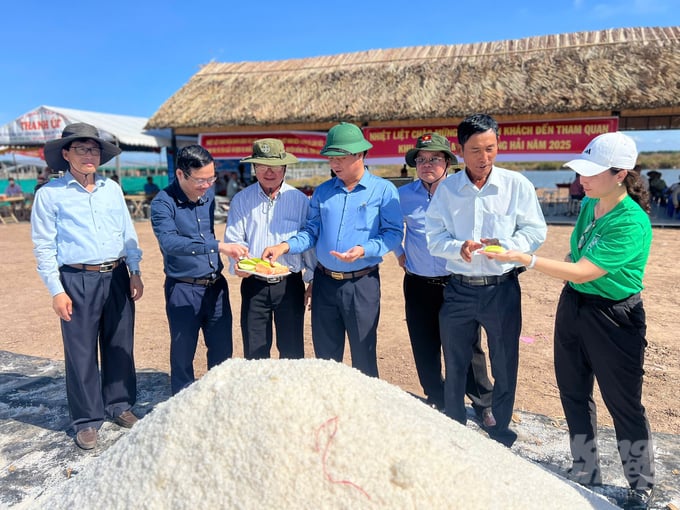
Deputy Minister of Agriculture and Environment Vo Van Hung visiting the salt exhibition site in Dong Hai District. Photo: Trong Linh.
Bac Lieu must prioritize attracting investment in high-tech agriculture, as agriculture remains a critical sector. Although economic development, digital transformation, green transition, and industrialization are equally essential, there is one sector in which Vietnam—and specifically Bac Lieu—holds a unique and irreplaceable advantage: agriculture.
Vietnamese agricultural products, including those from Bac Lieu, possess a competitive advantage that few countries can match. Additionally, the province benefits from key natural advantages, including its workforce, land resources, climate, and environmental conditions.
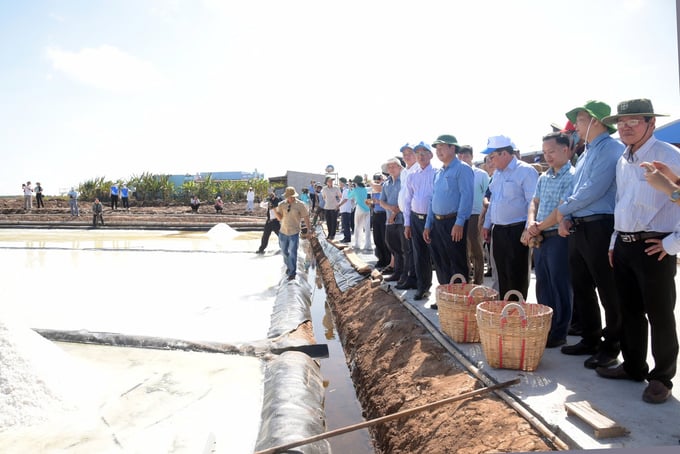
Vietnam Salt Industry Festival – Bac Lieu 2025, a key event that combines agriculture and tourism development in Bac Lieu Province. Photo: Trong Linh.
Bac Lieu Province will host the Vietnam Salt Industry Festival in 2025, a significant event aimed at combining agricultural development with tourism. Deputy Prime Minister Tran Hong expects that this festival will enable the province to promote smart rural development, ecological agriculture, and the expansion of value chains and logistics, which will ultimately enhance export value.
With an established development strategy, Bac Lieu is emerging as a key economic center in the Mekong Delta. The 2025 Investment Promotion Conference marks a pivotal milestone, introducing new opportunities for the province to boost growth and achieve sustainable development. Consequently, this strategy will position Bac Lieu as a leading hub for the marine economy, clean energy, and high-tech agriculture in Vietnam.
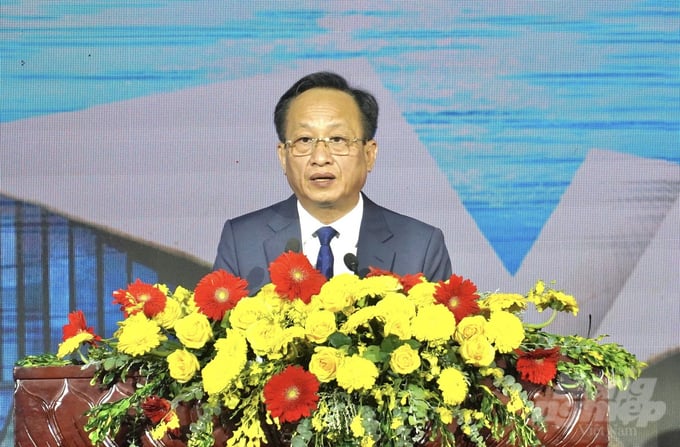
Chairman of the Bac Lieu Provincial People's Committee Pham Van Thieu delivering a speech at the event. Photo: Trong Linh.
During the conference, Chairman of the Bac Lieu Provincial People's Committee, Pham Van Thieu, emphasized that Bac Lieu has identified aquaculture—particularly shrimp farming—as a key driver of economic development. The province aims to become a national hub for shrimp seed production, farming, and processing, thereby reinforcing its position as the country's leading shrimp industry center.
Additionally, Bac Lieu is prioritizing production linkages and rice consumption contracts to enhance agricultural product quality. The long-term goal is to promote agriculture and rural development while improving farmers' livelihoods.
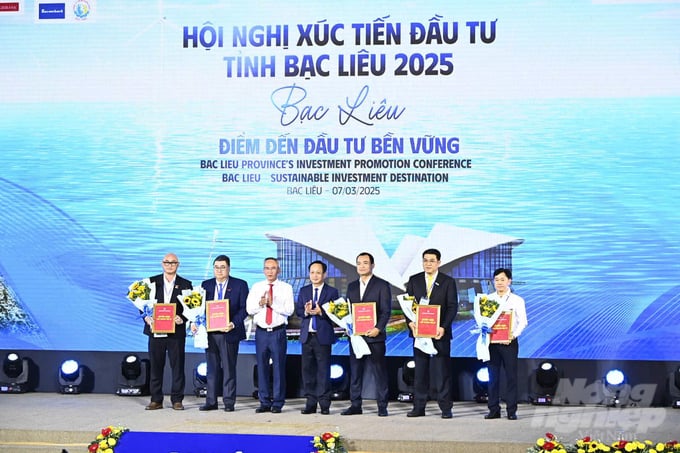
Bac Lieu Province granted Investment Policy Decisions and Investment Registration Certificates to six investors, including GrowMax Aquafeed Group, for nine projects totaling approximately 2.387 trillion VND. Photo: Trong Linh.
Chairman of the Bac Lieu Provincial People's Committee, Pham Van Thieu, affirmed the province's commitment to active cooperation, timely issue resolution, and the highest level of responsibility. He pledged to create a transparent and equitable investment environment, with continuous support and incentives under the principle: “Difficult tasks for the government, easier tasks for the businesses.”
At the conference, the Bac Lieu Provincial People’s Committee granted Investment Policy Decisions and Investment Registration Certificates to six investors, including GrowMax Aquafeed Group, for nine projects with a total registered capital of approximately 2.387 trillion VND.
Additionally, the province issued Investment Interest and Commitment Certificates to 17 investors for 17 projects, with a projected total investment of VND 83.2 trillion. The event also recognized the local business community’s contributions to social welfare programs and their sponsorship of the Investment Promotion Conference.
Translated by Nguyen Hai Long
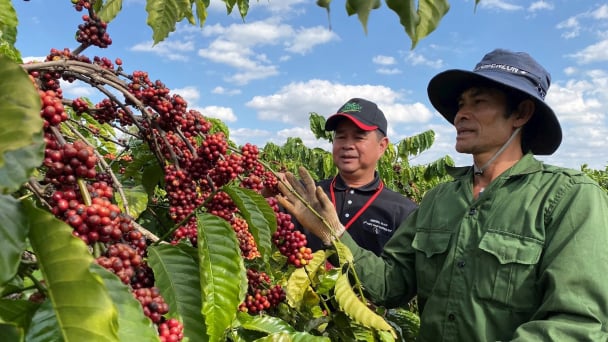
(VAN) Businesses emphasize fairness and equality when integrating social factors into their sustainable development strategies.
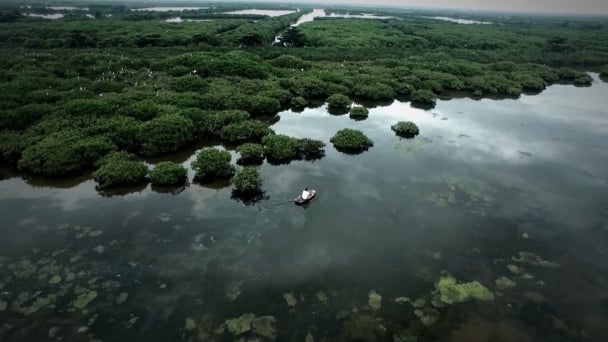
(VAN) French organizations and enterprises propose that Thai Binh province provide potential and long-term cooperation contents related to climate change response and green industrial development.
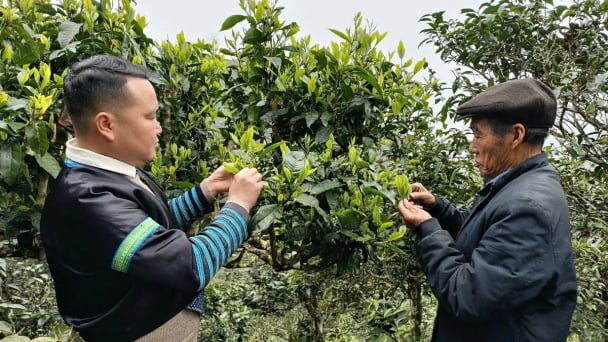
(VAN) Shan Tuyet tea is considered a 'heavenly treasure'. The H'mong people allow the tea to grow naturally, adhering to organic production principles, with the aim of exporting the product.
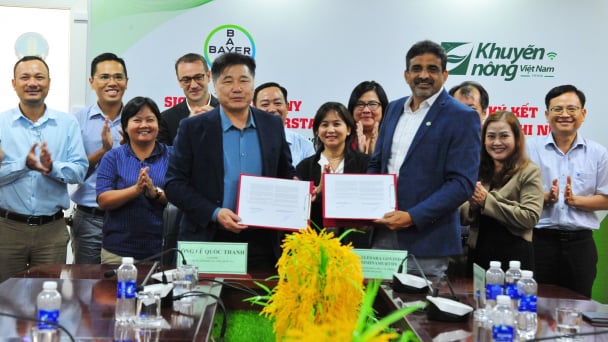
(VAN) Bayer Vietnam and the National Agricultural Extension Center have signed a partnership agreement to expand the development of effective and safe farming models for rice, durian, and coffee.
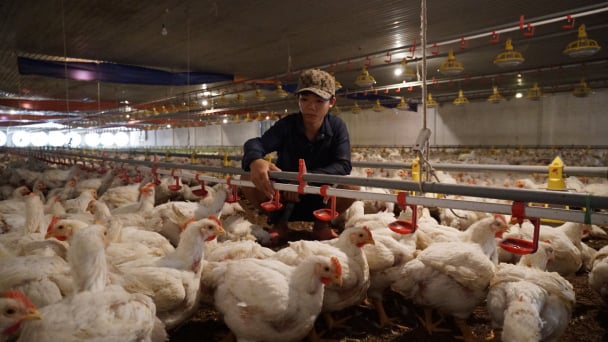
(VAN) Tay Ninh province possesses all the favorable conditions, from natural advantages to geographic location and social harmony, to drive economic development, particularly in attracting investment and advancing modern livestock farming.
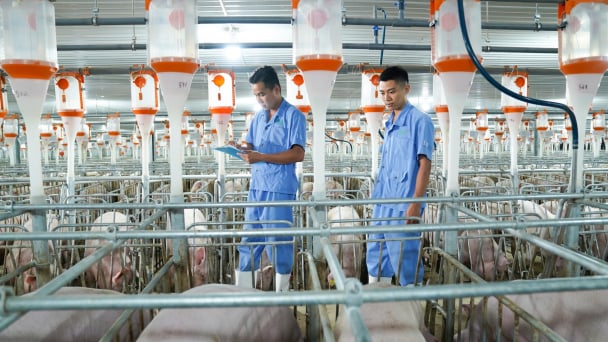
(VAN) Notably, every link in BAF's entire closed livestock value chain Feed - Farm - Food has received international certification.
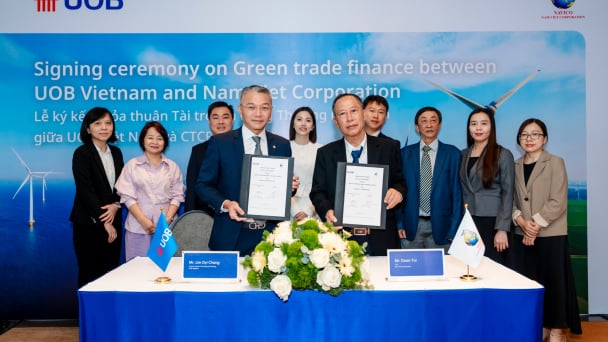
(VAN) UOB Vietnam has recently signed a green credit agreement with NAVICO to develop sustainable aquaculture that meets international standards.